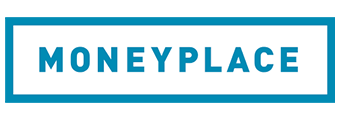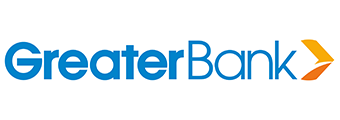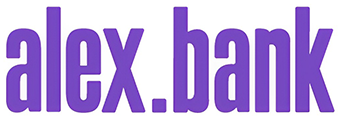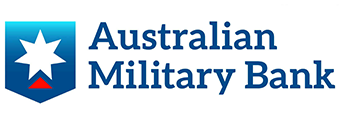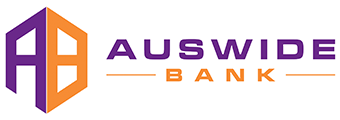
The best personal loan for people with a bad credit rating helps the borrower improve their rating by charging reasonable rates and fees to help the borrower demonstrate their ability to re-pay the loan and get on top of their finances.
But plenty of lenders on InfoChoice will allow you to check your score, get a rate personalised just for you and a conditional loan amount approved, without necessarily impacting your credit score or rating.
You should also take your time and thoroughly examine every offering you're considering before you apply, to make sure you fit the eligibility criteria and that you understand the fees and interest rates involved.
Read more about personal loans in InfoChoice's quick guide on how to get a fast online loan.
Advertisement
| Lender | Car Loan | Interest Rate | Comparison Rate* | Monthly Repayment | Interest Type | Secured Type | Early Exit Fee | Ongoing Fee | Upfront Fee | Total Repayment | Early Repayment | Instant Approval | Online Application | Tags | Features | Link | Compare | Promoted Product | Disclosure |
|---|---|---|---|---|---|---|---|---|---|---|---|---|---|---|---|---|---|---|---|
5.76% p.a. | 5.76% p.a. | $384 | Fixed | Unsecured | $0 | $0 | $275 | $23,066 |
| Promoted | Disclosure | ||||||||
5.95% p.a. | 5.95% p.a. | $386 | Fixed | Unsecured | $0 | $0 | $0 | $23,171 |
| Promoted | Disclosure | ||||||||
5.95% p.a. | 5.95% p.a. | $386 | Fixed | Unsecured | $0 | $0 | $0 | $23,171 |
| Promoted | Disclosure | ||||||||
6.56% p.a. | 6.56% p.a. | $392 | Fixed | Unsecured | $0 | $0 | $0 | $23,513 | |||||||||||
7.54% p.a. | 9.08% p.a. | $401 | Fixed | Unsecured | $0 | $0 | $595 | $24,068 | |||||||||||
6.30% p.a. | 6.30% p.a. | $389 | Fixed | Unsecured | $0 | $0 | $0 | $23,367 | |||||||||||
7.49% p.a. | 8.18% p.a. | $401 | Fixed | Unsecured | $300 | $10 | $150 | $24,040 | |||||||||||
6.99% p.a. | 6.99% p.a. | $396 | Fixed | Unsecured | $0 | $0 | $0 | $23,756 | |||||||||||
7.00% p.a. | 8.05% p.a. | $396 | Fixed | Unsecured | $0 | $15 | $0 | $23,761 | |||||||||||
8.98% p.a. | 9.34% p.a. | $415 | Fixed | Unsecured | $0 | $0 | $250 | $24,898 | |||||||||||
8.99% p.a. | 9.38% p.a. | $415 | Fixed | Unsecured | $0 | $0 | $275 | $24,904 | |||||||||||
8.49% p.a. | 8.49% p.a. | $410 | Fixed | Unsecured | $0 | $0 | $0 | $24,614 | |||||||||||
8.99% p.a. | 9.35% p.a. | $415 | Fixed | Unsecured | $0 | $0 | $250 | $24,904 | |||||||||||
8.99% p.a. | 10.02% p.a. | $415 | Fixed | Unsecured | $0 | $10 | $249 | $24,904 |
How does a bad credit loan work?
Bad credit loans work in the same way as standard loans, but there are different interest rates and fees. These loans likely have significantly higher interest rates as lenders want to compensate for their extra risks.
If you're looking for a personal loan and you know your credit rating isn't great, then stop and think before you apply for one. Every application for credit that you make can leave a footprint on your credit report and if you make several applications within a short time then this can damage your rating as it implies financial distress.
Many lenders have tiered interest rates based on credit rating. The lowest rates go to those with an 'Excellent' score, as explained below.
What is a 'bad' credit rating?
In Australia there are three primary credit reporting and scoring agencies - illion, Equifax and Experian. The banks and lenders will look to these agencies to assess your creditworthiness. Each have slightly different scoring systems but are generally ranked anywhere from 0 to 1,000 or 1,200.
'Bad' credit generally refers to 'Low' or 'Fair' credit scores.
| Credit score range | illion | Equifax | Experian |
| Excellent | 800 to 1,000 | 853 to 1,200 | 800 to 1,000 |
| Very good | 700 to 799 | 735 to 852 | 700 to 799 |
| Average | 500 to 699 | 661 to 734 | 625 to 699 |
| Fair | 300 to 499 | 460 to 660 | 550 to 624 |
| Low | 0 to 299 | 0 to 459 | 0 to 549 |
If you have a history of defaults, late payments or even bankruptcies, then you likely have a low to average credit rating. There is some variation within "low to average", however, so the best thing to do is to look at your exact score when you receive your credit report.
How to check your credit score or report
Checking your score and report is easy through one of the main three reporting bureaus - illion, Equifax, and Experian. The difference between a score and report is that the report is more in-depth. This can usually only be checked for free once per year, and registers as a credit inquiry on your report.
A score on the other hand can be checked more often, and can be done easily as the three agencies own various free credit score checkers.
Ordering a credit report beforehand is useful because you may find entries on it that are outdated, incorrect or due to be removed soon. Dealing with these errors, or just waiting for listings to drop off (if possible), could mean you can apply to mainstream lenders and get better rates.
See Also: What to do when you can't pay your debts
What to look for in a bad credit personal loan
Credit terms and regulations
Many loans for bad credit range from $2,000 to $5,000 and there are structures for these loans.
Under ASIC regulations, if the loan is for less than $2,000, you may find fees are higher but cannot exceed a certain threshold.
If the loan is between $2,001 and $5,000, you'll have between 16 days and two years to repay it. You can't be charged more than $400 in establishment fees and no more than 48% p.a. in interest.
More information can be found on the ASIC website.
Applying online
If you search for bad credit lenders online, this gives you the opportunity to compare a range of lenders, as well as to make a confidential and rapid application. However be wary of predatory lenders, such as payday lenders, and if you're unsure, stick to a reputable lender you've heard of.
There may be minimal credit checks
If your credit history is slowly improving, then you could find some lenders that will look at your current circumstances without delving too much into your past. However, you'll still face high fees and interest rates. Many unsecured loans rely heavily on your credit score, and don't pay much attention to your overall financial scenario.
Look at the repayment terms
You'll be offered several options for your repayments, as well as the chance to pay by direct debit if this keeps you on track. High repayments can lead to financial difficulty down the track and can surprise people who haven't made a budget.
The downsides of bad credit loans
Watch out for disreputable lenders
You shouldn't just think "Which lender will approve a bad credit loan?" You need to check out the lender thoroughly and make sure it's regulated by ASIC and stays within the fees and interest limits.
Payday lenders operate in a regulatory arbitrage because their loan terms are less than 62 days and as such do not have to abide by the National Consumer Credit Protection Act of 2009. This regulation essentially means a lender must offer hardship arrangements if you fall behind on your loan, and other safeguards.
High fees and inflexible payments
ASIC has sent out a warning to bad credit borrowers about the higher fees involved with bad credit loans and also the inflexibility of the lenders. With most "regular" lenders you'll get some wriggle room for late payments, but bad credit lenders might not be so lenient.
Shorter repayment terms
Most bad credit loans have maximum terms of two years, compared to the five, six or seven years offered by mainstream lenders. Do the maths before committing to a particular loan if your monthly repayments are uncomfortably high.
Establishment and monthly fees can be higher than usual
These add to the overall cost of the loan, so don't forget to factor them in when you're comparing products. The interest rate might look OK, but the fees charged can mean you're effectively paying a lot more in 'interest' per year.
What are the alternatives to bad credit loans?
Manage existing debt
Not managing credit card debt and other consumer and utility bills can cause debt problems that are difficult to repay. Managing card debt and spending is essential to maintaining a personal budget. If the credit card repayments are getting out of hand, you could consider a balance transfer.
If you're in financial difficulty, then borrowing small amounts of money at high rates might not be a long-term solution. You could talk to your utility providers to work out a payment plan or call the National Debt Helpline on 1800 007 007 for free financial counselling.
Time heals all wounds
Generally speaking negative credit information - knocked-back for loan, missed payments, defaults etc - stay on your report for around seven years.
This means that after seven years the slate is wiped clean, and in that time there are various simple ways to build up your credit profile:
- Postpaid phone plan and internet: A useful way to develop a credit history and demonstrate good credit behaviour is to have a postpaid mobile phone and internet plan in your name. Of course, pay it off on time.
- Energy bills: Similarly, having energy bills in your name can help develop your credit history and paying them off on time will help build your file.
Secure the loan
Unsecured loans are generally more reliant on credit ratings because there is nothing to secure the loan against, which minimises risk for a lender. If you want a lower interest rate and a loan that is perhaps less reliant on your credit score, securing the loan could be an option.
Loan securities commonly include a car, or a term deposit if you have a chunk of cash. In the event of default, the lender will have recourse and could repossess your car or take your term deposit. This lowers the risk for them, and you will likely receive a lower interest rate and access to credit.
First published in February 2020





